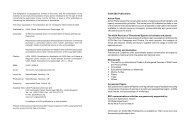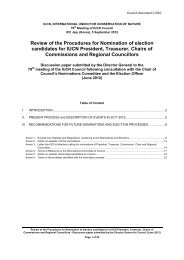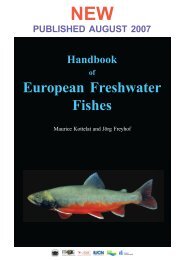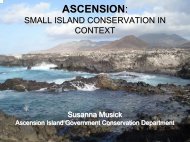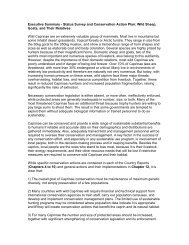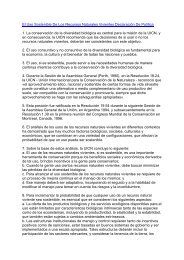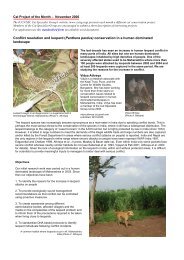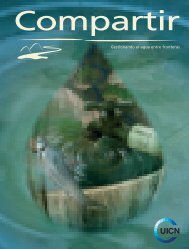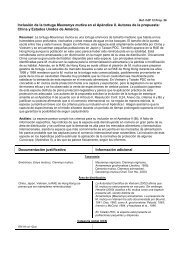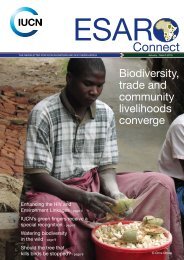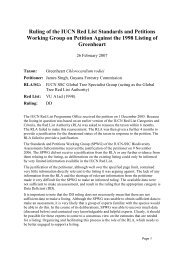Planning education to care for the earth - IUCN Knowledge Network
Planning education to care for the earth - IUCN Knowledge Network
Planning education to care for the earth - IUCN Knowledge Network
Create successful ePaper yourself
Turn your PDF publications into a flip-book with our unique Google optimized e-Paper software.
<strong>Planning</strong> <strong>education</strong> <strong>to</strong> <strong>care</strong> <strong>for</strong> <strong>the</strong> <strong>earth</strong><strong>education</strong> in <strong>the</strong> curriculum, and in improving its status by being included inexaminations.ConclusionStarting with wildlife resources, CAMPFIRE is diversifying in<strong>to</strong>timber exploitation, fisheries and eco-<strong>to</strong>urism. In each project,sustainable utilization of resources <strong>for</strong> <strong>the</strong> benefit of <strong>the</strong> people is <strong>the</strong>guiding principle. Cultural tradition and modern <strong>for</strong>mal <strong>education</strong> arecombined <strong>to</strong> contribute <strong>to</strong> attitudinal change in CAMPFIRE. Theprogramme is creating confidence in rural development in localcommunities as well as a positive attitude <strong>to</strong>wards <strong>the</strong> management ofnatural resources.Central <strong>to</strong> CAMPFIRE is <strong>the</strong> notion of transfer of power from higher<strong>to</strong> local levels. The principle of co-management at various levels is<strong>the</strong>re<strong>for</strong>e encouraged as a means of avoiding <strong>the</strong> conflict which mayarise if some elements are slow <strong>to</strong> adapt <strong>to</strong> change.Some areas still call <strong>for</strong> attention. Old bureaucratic approaches <strong>to</strong>rural development within some district councils, <strong>for</strong> example, have <strong>to</strong>be unlearned and proper respect accorded by officials <strong>to</strong> <strong>the</strong>knowledge of rural people.Greater decentralization of legal authority is needed as a consequenceof <strong>the</strong> increased role of advocacy by rural people.Environmental <strong>education</strong> should cover all elements of society, andCAMPFIRE must now expand <strong>to</strong> cover on a larger scale o<strong>the</strong>r <strong>for</strong>msof sustainable development such as eco-<strong>to</strong>urism . Environmental<strong>education</strong> also calls <strong>for</strong> <strong>the</strong> greater use of radio in Zimbabwe.Lessons learnedThe importance of stake holder participation in planning <strong>education</strong>alprogrammes:The CAMPFIRE experience has proved that planning of any<strong>education</strong>al material <strong>for</strong> grassroots people must be participa<strong>to</strong>ry innature if it is <strong>to</strong> be sustainable. Educational planning must besensitive <strong>to</strong> cultural perceptions of <strong>the</strong> people <strong>to</strong> be targeted.Finally, <strong>the</strong> principle of adaptive learning must always be explored aslocal people’s needs are dynamic and planning must encompass thisdynamic process.72



